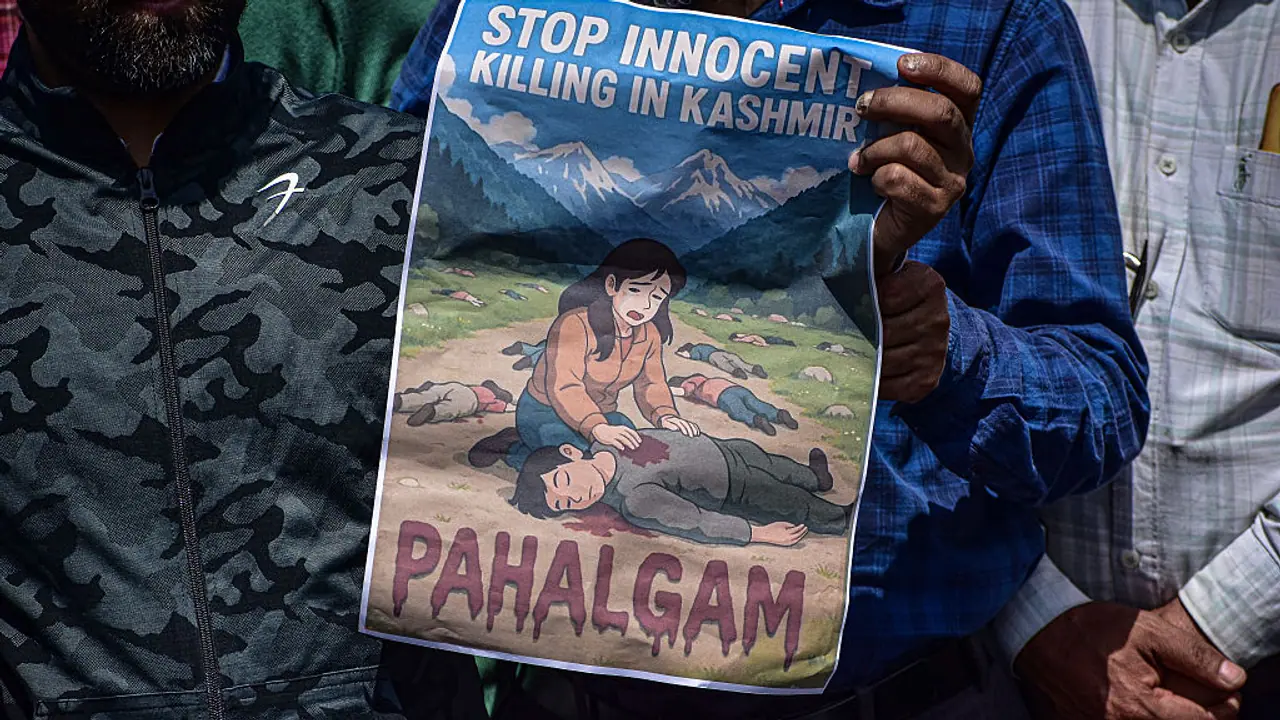India refused to sign the SCO joint declaration after it failed to mention terrorism or condemn the Pahalgam attack, exposing double standards by Pakistan and China.
In a bold and principled move, India refused to endorse a joint declaration at the Shanghai Cooperation Organisation (SCO) Defence Ministers’ meeting in Qingdao, China, on Thursday. The reason was crystal clear — the final document failed to even mention terrorism, let alone condemn it.

While some early reports misleadingly claimed that the declaration mentioned the Balochistan crisis but ignored the recent Pahalgam terror attack, Indian government sources have flatly denied this. In fact, they revealed that the document didn’t even have a single letter referring to either crisis — no B for Balochistan, no P for Pahalgam, and most shockingly, not even T for terrorism.
‘No B for Balochistan, No P for Pahalgam – Not Even T for Terrorism’
Sources familiar with the discussions said the lack of reference to terrorism — a foundational pillar of the SCO’s stated objectives — was a glaring omission. India, which has consistently pushed for regional accountability on cross-border terror, found it impossible to be part of a document that essentially glossed over the issue.
"The alphabet soup of the declaration document did not have either B (Balochistan) or P (Pahalgam) in its text," a senior source explained. “The document did not even have a reference to T (terrorism). This prompted India to back off from signing the final declaration.”
Rajnath’s Firm Message: “No Mention of Terror, No Signature”
Defence Minister Rajnath Singh, who represented India at the SCO meet, took a strong and principled stand by refusing to sign the joint document. According to government sources, India was "not satisfied with the language of the joint document," especially because there was "no mention of the terrorist attack in Pahalgam.”
In his address to the SCO Defence Ministers’ gathering, Singh didn’t hold back. He stressed that there should be no place for double standards regarding terrorism and called out member states for their selective silence. He made it clear that countries that indulge in terror or provide safe havens to terrorists must be openly criticised, not protected.
Jaishankar Drops the Hint: “You Can Guess Which Country”
On Friday, External Affairs Minister S Jaishankar doubled down on India's position during a press conference in New Delhi. He made no attempt to hide his disapproval, directly hinting at Pakistan — and by extension, its all-weather friend China — for derailing the consensus.
"Let me give you some context because I think it's important. The Shanghai Cooperation Organisation, its objective was to fight terrorism. This organisation exists to fight terrorism,” Jaishankar stated. “When Rajnath Ji went for a defence ministers' meeting, and there was a discussion on the outcome document, one country. You can guess which one. One country said that no, we do not want a reference to that."
He continued, “Rajnath Singh's view rightly was, without that reference, that when the main purpose of the organisation is to fight terrorism, and you are not allowing a reference to that, he expressed his unwillingness to accept... SCO runs with unanimity. One country did not agree to making a reference to terrorism in the statement. So, Rajnath ji clearly said that if there is no mention of terrorism in the statement, we will not sign it."
India Exposes the Hypocrisy Within SCO
The Ministry of External Affairs later issued a statement reinforcing the reasons behind India’s decision. It read: "India advocated for the inclusion of terrorism concerns in the document, but one country objected. Defence Minister urged countries to unite against terrorism and hold perpetrators accountable, emphasising regional stability and security."
This development has once again highlighted the uncomfortable truth about the SCO — while it markets itself as a regional security bloc, its effectiveness is regularly sabotaged by nations with vested interests.
China and Pakistan, often seen shielding one another diplomatically, have repeatedly blocked efforts to designate known terrorists, delayed consensus on anti-terror statements, and undercut India’s attempts to bring real accountability to the table.
India’s refusal to sign a weak, sanitised declaration isn’t just a diplomatic statement — it’s a warning. A bloc that refuses to name and shame terrorism has no credibility in the fight against it.


